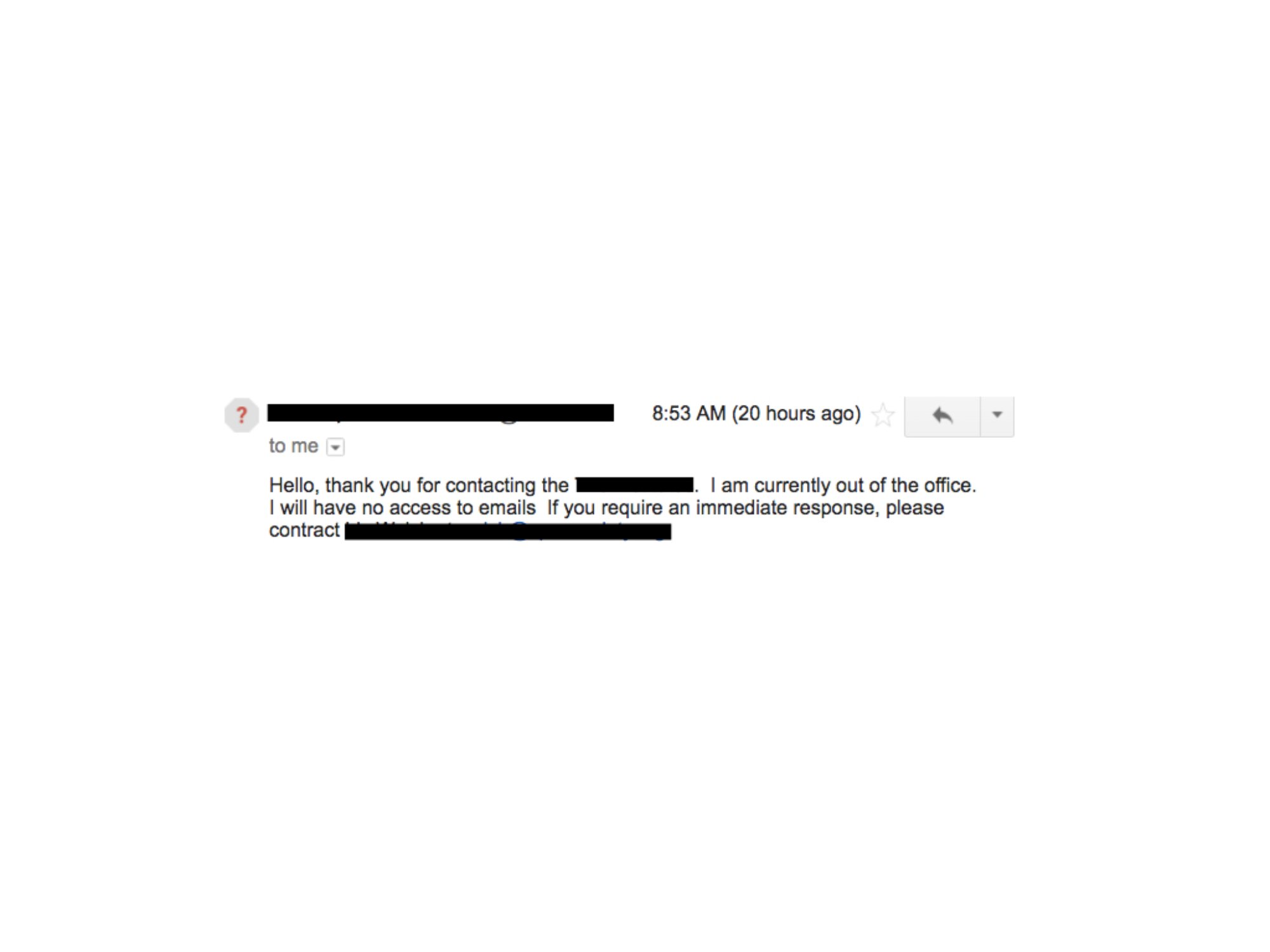I silently read the electronic response multiple times, seconds after it hit my inbox:
“I will be out of the office today and will have limited or no access to email.”
After receiving three identical retorts from different message recipients in a single hour, I could take it no more. I hit ‘reply’ to a business associate in Washington and began typing:
“I had no idea you had left the Earth’s atmosphere. Please respond when your spacecraft returns. And tell NASA to pony up some bucks for ‘in-shuttle Wi-Fi.’”
NASA, it turns out, has already done so. Just ask retired U.S. Navy captain and astronaut Scott Kelly, who logged 520 days in space, 340 consecutively, before permanently returning to earth last year. Even from the International Space Station, Kelly was always connected.
“We could access our ground email, work, or personal,” Kelly said. “People wonder how it’s possible to get email in space. I find this odd. Satellite communication is part of our everyday lives and the ISS is a satellite.”

If Kelly can receive emails while hovering 240 miles above the earth, then it is time to retire the bald-faced “limited or no access to email” lie that accompanies the convenient auto-reply feature we utilize when we wish to free ourselves from the burden of answering messages. At the very least, let’s replace it with a choice of more truthful statements:
- “I am on vacation; therefore, I will not be getting back to you. That’s why it’s called a ‘vacation.’”
- “I read the subject and first line of your email and found it to be brain-numbingly dull. Therefore, I will not be responding.”
- “First time I’ve ever used this cool auto-response feature. Did it work?”
- “Who are you?”
Some years ago, I took a job performing stand-up comedy aboard a cruise ship. Having never experienced a cruise before, I marveled at the environment’s serenity and stillness, despite the nightly, daiquiri-fueled conga line that always seemed to materialize on the pool deck. The middle of the ocean, I reasoned, was truly the only place left where one was liberated from the steady barrage of vibrations and pings signaling the arrival of yet another email on our phones.
I returned to the vessel a year later, dismayed to see that one of its cocktail lounges had been somehow converted into an annoyingly-titled “Wi-Fi cafe.” Throughout the day, up to a dozen cruisers could be found hunched over aging computers, responding to emails as they awaited their sixth meal. Or seventh. One loses track of the food schedule aboard cruise ships.
Much like President Trump, whose lies, misstatements, and flip-flops are immediately revealed via photos, video clips, and tweets containing damning, contradictory evidence, some of my contacts bust themselves. An associate in Minnesota, whose auto-response included the phrase “no email access because I’m traveling” in all caps, found the time and technological wherewithal to post a steady stream of pictures from his travels on Facebook. In Los Angeles, to be precise.
“There’s a Starbucks on Sunset Boulevard with great Wi-Fi,” I texted, mindful of his alleged email predicament. “And who knows? Maybe you’ll see Tom Hanks!”
Perusing my email app’s trash folder, where I quickly deposit auto-response messages, I noticed that a few contacts had taken the time to edit their responses (yes, that is possible!). Their reasons for ignoring me made perfect sense:
“I am off the grid.”
“Our office is closed. Please text my cellphone.”
“I’m gallivanting with Mickey Mouse.”
“I have retired.”
It is time to admit the only way to run away from emails is to disable one’s Wi-Fi and cellular functions, thereby preventing those pesky cell towers from locating us. Not doing so means you are connected 24/7, despite your pathetic attempts to hide via a prepared response. Don’t like it? Then I suggest you strap yourself aboard a rocket ship and blast off into…
Wait, that won’t work either. Just ask Scott Kelly.




The F-Bomb Has Gone Mainstream — And Nobody Cares Anymore